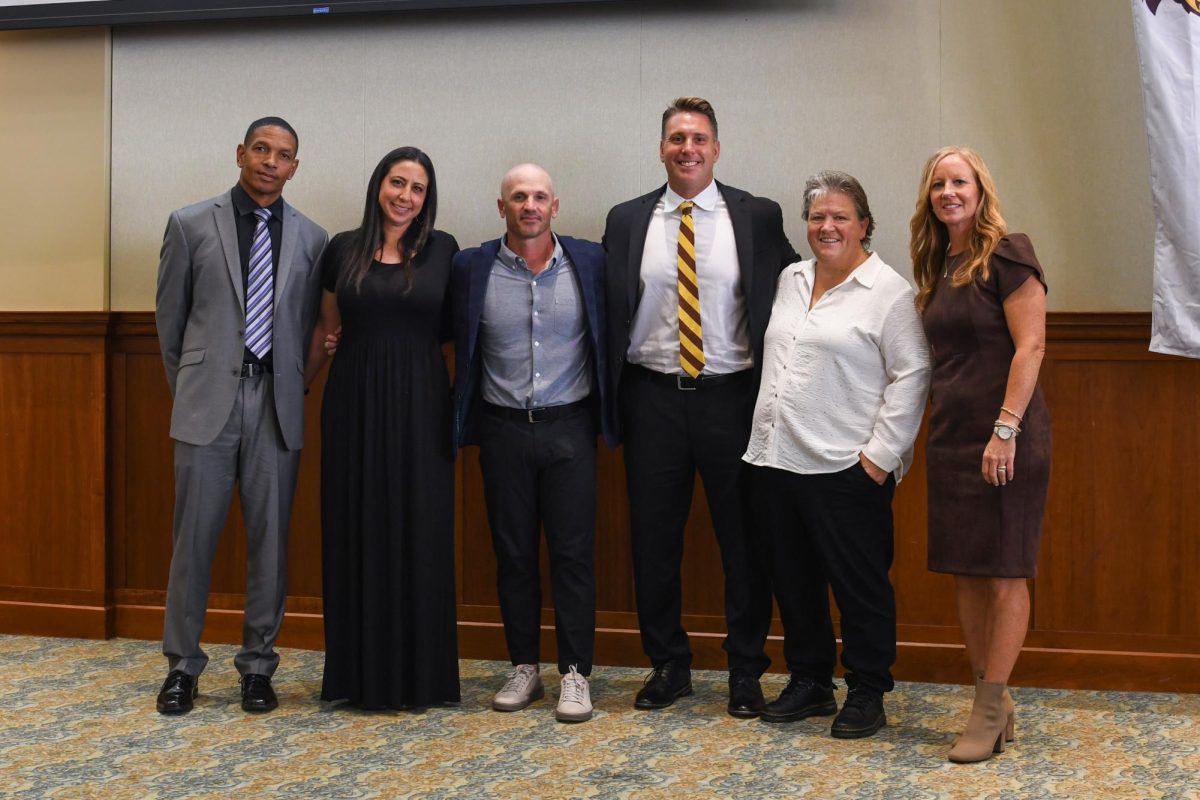Hispanic Heritage Month shines a spotlight on the voices, journeys, and experiences of the Hispanic/Latino community. “Made in America” tells the story of an undocumented student who is in college, but his Deferred Action for Childhood Arrivals (DACA) hasn’t been renewed, thus he finds himself in the middle of an immigration raid at his job. This film was written and directed by Rowan alumni Edgar Aquino Huerta. It aims to give a voice to those who have gone through similar experiences. Experiences that I have seen firsthand. Huerta encapsulates the struggles of the undocumented immigrant in 11 minutes, and it doesn’t waste a second.
This isn’t a high-budget film, but it’s one that comes from a place of realism. The struggles that an undocumented immigrant goes through are underscored by a fear of persecution. There is a moment where the main character Santiago, played by Huerta, is talking to his sister Chofis, played by Rosita Salvatierra, and they talk about driving through back roads. Why is that so significant? The reason is simple, if you’re undocumented then you can’t get a license. While it is illegal to drive without a license, the immigrant will do it because they need to. They need to get to work and driving through back roads is one way to keep out of sight of law enforcement. Speaking from experience, my parents both had to drive to get to work. I would overhear them talking about the fear of getting pulled over and possibly not coming home.
The natural dialogue in the film is what instantly hooked me. While the dialogue may be Spanish-heavy, there are subtitles, but what stands out is the use of Spanish and English between the Latino characters. As a son of two Mexican immigrant parents, I’ve grown accustomed to speaking English while my parents respond in Spanish. While this may go over someone’s head, the detail didn’t go unnoticed.
There is a clash of ideologies between Santiago and Ivan, played by Isai Matias. The conflict stems from Ivan’s jealousy of being undocumented and Santiago having a worker’s permit through DACA. While I may not be a DACA recipient because I was born here, I have experienced moments where I felt discriminated against for having been born a citizen. So, I understand how that makes the character feel. It’s not my fault, just like it isn’t Santiagos, that we have these opportunities. My parents worked long hours and nights to put clothes on my back and food in my belly so I could go to school, and make something of myself. It’s a film that made me think about my past and look at certain events in my life through a new lens.
If you’ve seen it, do not spoil the ending, which shows the harsh reality of the undocumented immigrant experience. The message shines through its writing, and the story is rooted in a place of personal experience. Experiences I recall my mother and father going through, from the early morning wake-ups, the long days under the sun— yet they never complained. This is why this film should be watched during Hispanic Heritage Month.
Huerta succeeds in bringing us into the world of the everyday immigrant worker and the film ends with the following message, straight from the mouth of one of the characters.
“We come to this country not to steal anybody’s job, but to take advantage of the opportunities that the rest ignore. We’ve been taking care of American soil for many years. But our hands will always be invisible. Every piece of dirt that is stuck between our fingernails symbolizes years of mistreatment and humiliation. But to the Americans, we will always be ghosts.”
For comments/questions about this story DM us on Instagram @thewhitatrowan or email [email protected].



































































































































































































